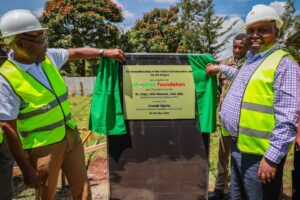Nearly half of the 1,000 public projects being implemented by Prseident Uhuru Kenyatta’s adminstration have stalled and will need Sh1 trillion to finish up.
International Monetary Fund (IMF) has stated, raising questions about the country’s planning and public spending decisions.
Most of the stalled projects is due delayed payments to contractors which is a major cause of cash crunch in the private sector that has resulted in joblessness and dry pockets.
Latest Central Bank of Kenya (CBK) data is showing that the cash circulating outside banks dropped to Sh176.9 billion in September which is the lowest since September 2015.
“The number of stalled projects is increasing, and is currently estimated at approximately 500 (half of all ongoing projects), because of non-payment to contractors, insufficient allocation of funds to projects, and litigation cases in court,” the IMF said in a fiscal transparency evaluation update on Kenya released on Wednesday, but which was finalised in August 2019.
“Expenditure estimated at Sh1 trillion which represents 12 percent of the GDP) is needed to complete these projects,”
The statement further said that the rapid increase in public investment since 2010 occurred without ‘thorough screening’ for project viability and readiness before they entered the budget.
The Bretton Woods institution also realized that lack of effective monitoring has let many projects to enter the budget pipeline resulting to challenges in bankrolling projects that had been initiated already.
Most of the public projects lack a cost-benefit analysis as well as standardized appraisal and selection plans, hence failing to match expenditure to available financial resources.
This was disclosed after meetings between the IMF and National Treasury officials, the Central Bank of Kenya (CBK), the Kenya Revenue Authority (KRA), the Kenya National Audit Office (KENAO), the Controller of Budget (CoB) and other agents of the government, parastatal heads and regulators who oversee public projects.


















